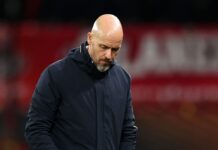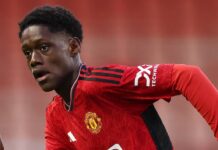[ad_1]

Fifth Prize “Empress Theophano”. Awarded to Special Olympics, President Dr. Timothy Shriver And CEO Mary Davis Last week in Thessaloniki, Greece, at a moving ceremony in the 2,000-year-old rotunda in Thessaloniki, Greece, in the presence of hundreds of global actors in the development community.
In his opening speech, Chairman of the Board of Directors of Theophano Foundation, Stavros Andreadis, emphasized that humanity has been and continues to be the constant focus over the five years of the award, and that the overarching goal is to highlight the values that illuminate the world. The path towards respect for the life of every person, and the path to a better global community in a world of cooperation and mutual understanding. “This year, I would like to say perhaps more emphatically than ever, that the Empress Theophano Award is focused on humanity: on the strength of human will, on strength, on effort, which never stops despite adversity. And every day, the people of Special Olympics go above and beyond.” Athletes and volunteers, through sport, break their boundaries, change their lives and transform society itself through their example.

Dr. Timothy Shriver expressed his gratitude for the awardPointing out that it was a medal not only for the organization, but for a movement for human dignity, he said: “We accept this great award in the name that unites East and West – Theophano. We accept this as a sign of the victory of our athletes. They have achieved victories of their own. Their victories are over division and over arrogance.” And despair. We also embrace it in the promise of courage. This award aims to reimagine Europe. If courage is what it takes, we want all schools in the world to teach and adapt With the needs of people with intellectual disabilities, he said: “All children, and all adults, should be able to participate everywhere.” He added: “We can address the differences that divide us,” and called on athletes to continue to be brave, courageous and victorious, but they must also be victorious. They show the world what it means to be free.
A unified race involving Special Olympics Hellas athletes, their coaches and community members kicked off the morning after the awards ceremony, before a roundtable was held in the Thessaloniki Concert Hall and moderated by Special Olympics Board Member and World Athlete Congress President Keira Béland. A panel discussion that lasted approximately two hours entitled: Inclusive Sport: Driving Human and Social Development for a Changing Europeincluded opening remarks from Special Olympics CEO Mary Davis, conclusions from President Herman Van Rompuy, Chair of The Theophano Foundation Advisory Board, and a lively panel discussion from speakers including Mr. Gilmore Borg, Global Athlete Leader from Malta, Ambassador Dionysius Koudilas, Special Olympics President Hellas, Chairman Dr. Timothy Shriver, Dr. Jacqueline Goodell, President of Global Youth and Education at Special Olympics and Clelia Pantazi, Olympic medalist in rhythmic gymnastics. Participants discussed how sport can promote social inclusion, support human development, and address the challenges that communities face every day around the world. Dr. Shriver asked how many countries and educators around the world could answer how to educate the heart. “Every education minister in the world has an answer for what they are doing in technology, mathematics and artificial intelligence,” he said. But I do not think that most educators can answer the question: How do you educate the heart? The Special Olympics experience for children with disabilities and without ID provides heart-opening and a profound sense of human dignity for all.

Dr. Jackie Goodell added that Special Olympics defines inclusion in education by: “We believe that if you teach children to play together, they will be able to learn together and thrive together. In this simple framework there are really two lessons, despite the lack of clarity we see in the conversations Universality around inclusion in education, when you start talking to young people, there’s absolute consistency in their definition of inclusion and they know what their definition is and what it looks like, and more importantly they know what it looks like and it’s like respect and connection and belonging “Young people and teachers are very clear that they want to learn how to teach inclusion, and we have a simple framework that we use that works.”
Mr. Borg commented that before joining Special Olympics, he was bullied. “Unfortunately, I left school before I could read,” he said. I was targeted because I was different. I joined Special Olympics, found friends, and learned how to read. Now I am proud to say that I am in politics and have been elected by my colleagues. Special Olympics was the spark I needed to see the light at the end of the tunnel.
[ad_2]











